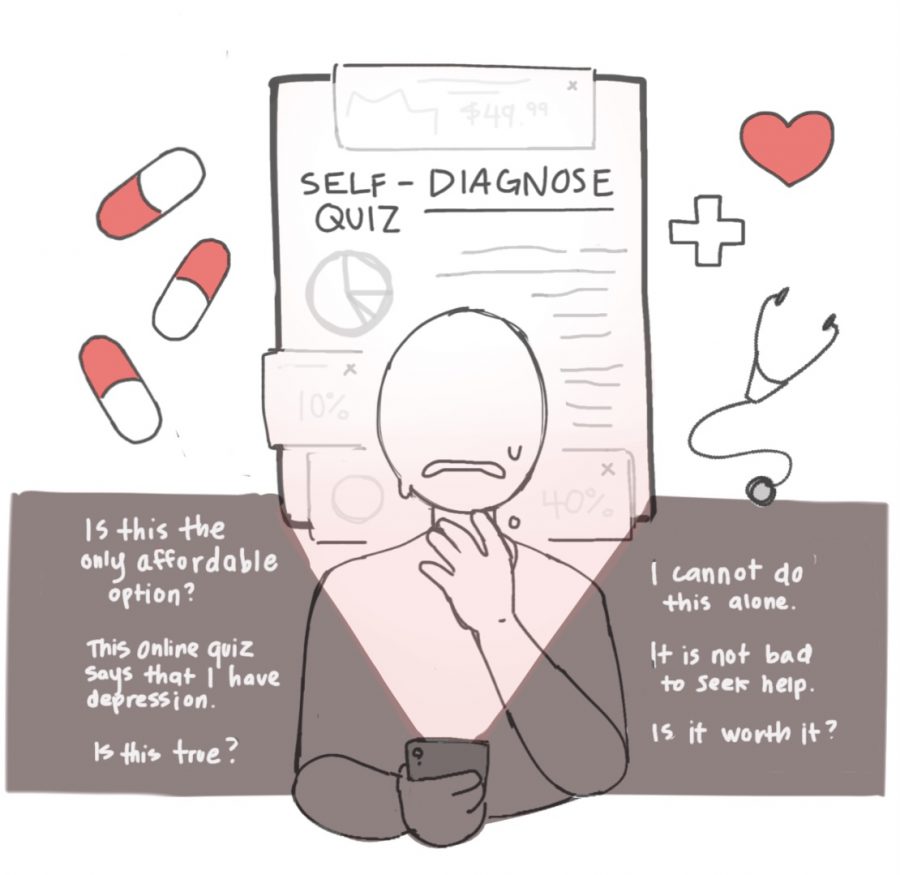OPINION: Performing a self-diagnosis often leads to misdiagnosis and can have negative repercussions
Looking up symptoms online may cause a person to miss a potentially related sign of a specific condition, falsely dismissing the illness.
The accessibility of the internet has opened the door to searching for just about everything and anything, including self-diagnosing a medical condition. In some cases, the internet can aid with medical advice, whereas in others, it only leads to further harm. The availability of information online and the long wait for a doctor’s appointment lead many people to self-diagnose a health issue they are experiencing. While seeking information online may ease worries if the symptoms turn out to be common, it can backfire when people jump to conclusions.
Self-diagnosis is often synonymous with misdiagnosis. Looking up symptoms online may cause a person to miss a potentially related sign of a specific condition, falsely dismissing the illness. This is especially true with mental health or illnesses. Mental disorders or illnesses affect individuals in different ways, and there is no single framework, thus making it difficult to get a proper diagnosis online. Only doctors have the knowledge and experience to detect connections between symptoms.
There is also the possibility of the opposite occurring: experiencing a few symptoms that are related to a serious diagnosis when the reality is just something like a common cold. Finding that symptoms match those of a serious illness can lead to unnecessary stress and worry if the illness is not actually present.
In a Stanford research project, researchers created standardized lists of symptoms from 45 clinical vignettes that are used to teach and test medical students. They then input those symptoms into 23 different symptom checkers. Overall, the software algorithms that the researchers studied only listed the correct diagnosis as the first result 34 percent of the time. They also found the evaluated symptom checkers tended to be overly cautious, encouraging users to seek professional care in situations where self-care could be more reasonable.
Symptom checkers are tools that may be useful for people who are debating whether a doctor’s visit is necessary. In many cases, however, users should be cautious that the information they receive from online symptom checkers may not be correct diagnoses. A 2015 study from the Pew Research Center found that only about half of the people who look for information online talk to their doctors about what they have found. In most cases, people believe what the search engines have told them, and they might act on that information without consulting an outside source at all.
Unfortunately, for those who put full faith in an online diagnosis, a common outcome is following an incorrect cure or treatment. False treatment without proper care can further jeopardize the health of that individual. Believing a non-professional diagnosis can lead to a drug addiction or ailments that may be “prescribed” online but are actually unnecessary.
For physical conditions, it is best to consult a professional instead of immediately googling the problem. Mental and emotional health is just as crucial as physical health, and the three are often tied together. If one finds themself struggling to treat their mind and heart, they should seek therapy or counseling rather than diagnosing themselves online. Self-diagnosis can have tremendous negative repercussions. For this reason, while reading is helpful and informative, it is always best to discuss concerns with a doctor or professional to decide on potential treatment.


